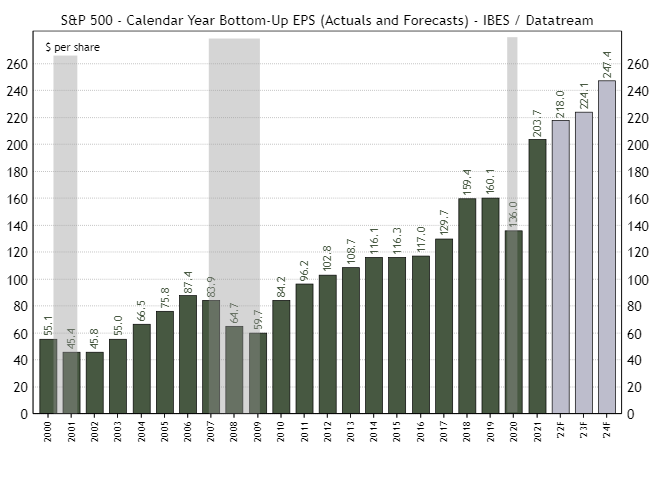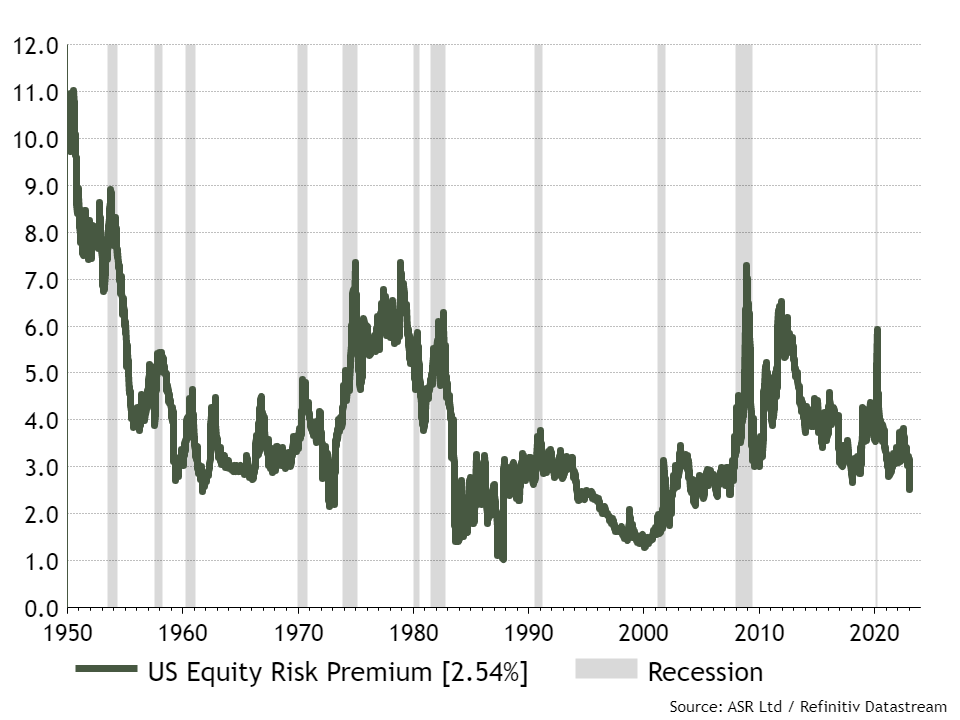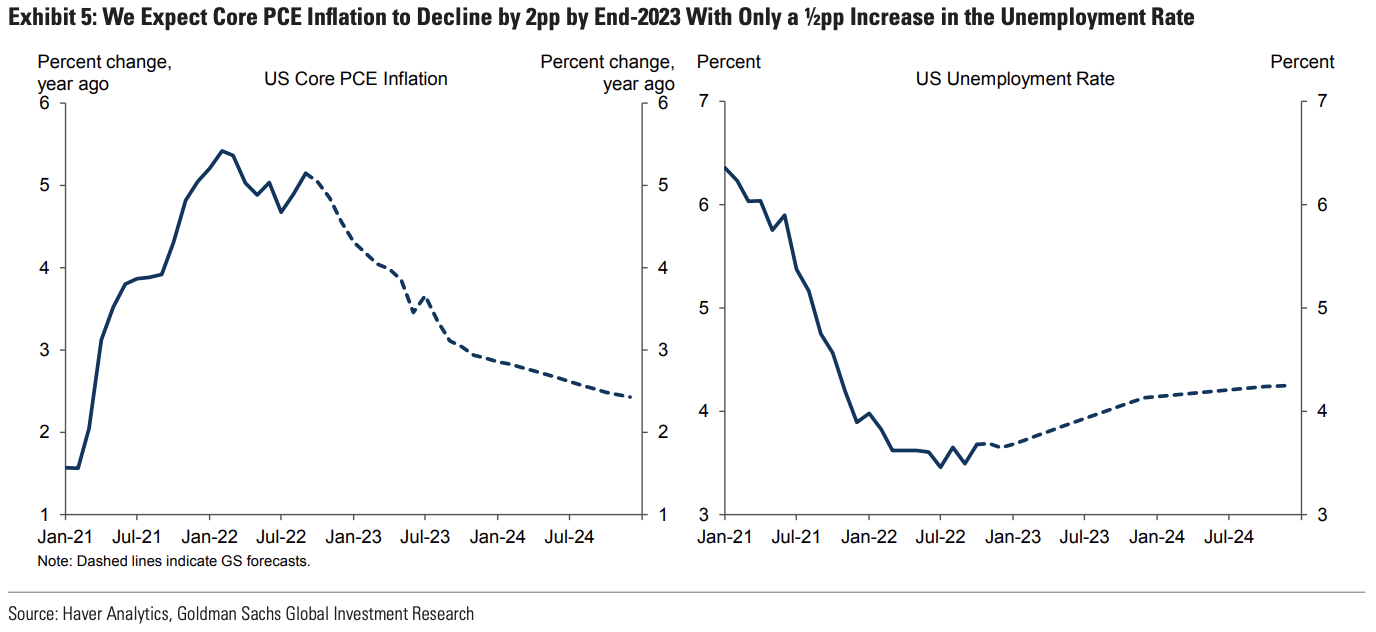Think recession is a lock? Think again
In the defence and intelligence sector, balanced situational awareness is critical. Groupthink and crowded consensus can literally mean the difference between life and death.
Such is the need for balanced analysis that organisations in this field frequently employ so-called 'red teams'. The sole purpose of a red team is to provide a contrarian idea or theory to decision-makers; one that goes against the grain.
This kind of approach can be applied to financial markets, albeit with slightly lower stakes. Indeed, any healthy appraisal of the market needs to consider counter-consensus views.
In this wire, I will apply some red team analysis to today's market by drawing on graphs, broker notes, and expert opinion. These suggest that, at worst, the market isn't in the kind of trouble most commentators believe and, at best, we could be on the verge of a bull market.
Note: This is a thought experiment. Don't make investment decisions based on this analysis alone. On balance, it's probably wrong. For the bear case, check out this great piece by my colleague Hans Lee.
Equity markets aren't pricing in a recession
Most of the time, share prices follow earnings. If earnings are high, much less outperforming expectations, then share prices will rise. And vice versa.

The above chart shows the actual (in green) and projected (grey) earnings of the S&P 500.
In a recessionary environment, you would expect those grey bars to trend down, rather than trend upwards to levels above what they were even in previous bull markets.

Above is another nice graph from the good folk at Absolute Strategy Research. The equity risk premium is a great tool to gauge whether the market is "risk on" or "risk off" because it measures the amount investors are willing to pay for stocks over the risk-free rate.
When investors believe the market is in dire straits, they will demand a greater premium from stocks over the risk-free rate. Inversely, investors are happy to own stocks that pay a lower return over the risk-free rate if they believe the market is in good shape.
Once again, the graph is trending down when it should be trending up in a recessionary environment.
Absolute Strategy Research co-founder Ian Harnett gives two possibilities: "Either the recession view is wrong, or Equity prices and Bond yields must fall."
Powell's favourite indicator is forecast to decline
It's no secret that US Fed's preferred inflation measure is the Core Personal Consumption Expenditure Price (CPE) Index. This tracks the domestic prices individuals pay for goods and services, excluding the prices of food and energy. And, crucially, it's falling.
US Fed Vice Chair Lael Brainard stated in a speech this month that:
Core PCE inflation is running at a 3.1 percent annualized pace on a 3-month basis—below its 3.8 percent reading on a 6-month basis and 4.5 percent on a 12-month basis. Within this, recent declines in core goods inflation reflect a reduction in core import prices, an easing of supply chains, a restocking of inventories, and cooling demand. Core goods prices are likely to flatten out once earlier large gains reverse, in the absence of new shocks, and overall core inflation could move up somewhat for a time as a result.
Goldman Sachs, in its Macro Outlook 2023, indicated it expects year-over-year core PCE inflation to decline from 5.1% in September to 2.9% in December 2023.

Put simply, that means a recession will be avoided.
Goldman gives two reasons for this. First, "Demand has slowed, the pandemic has subsided, unemployment benefits have normalised, and excess savings are coming down."
"The second reason why this cycle is different is that the recent normalisation in supply chains and rental housing markets is a source of disinflation not seen in previous high-inflation episodes such as the 1970s, and it is only beginning to show up in the official numbers."
The Fed fired its shot, and the economy still stands
Neil Dutta, head of economics at Renaissance Macro Research, is one of the few commentators sounding an optimistic tone about the health of the US economy. He makes two key arguments.
First, he rejects the idea that there are long lags from policy tightening and the impact of tightening is yet to be felt.
"There is a statute of limitations with this idea," says Dutta.
He points to the health of the housing market, which become something of a bellwether for US recession.
"The housing market tanked before the Fed started hiking. The drop in rates is now providing a lift to housing demand; homebuilders are rallying, which means residential investment follows. Moreover, financial conditions had been tightening for over a year and the unemployment rate still stands at 3.5%."
Second, "The Fed and the fiscal policymakers fired their shot and the economy still stands."
"Fiscal policy is transitioning to a tailwind and households are seeing stronger real incomes as utility bills, grocery bills and pump prices drop. Global growth is picking up and as a result, the US dollar has been selling off. This is happening at a time when the Fed wants to run policy tighter than its peers!"
"The Fed should be hiking just to keep pace with higher neutral rates. Instead, they are signalling they’ll be done relatively soon, on autopilot to just above 5% with an extended pause."
Never miss an insight
Enjoy this wire? Hit the 'like' button to let us know. Stay up to date with my content by hitting the 'follow' button below and you'll be notified every time I post a wire.
Not already a Livewire member? Sign up today to get free access to investment ideas and strategies from Australia’s leading investors. And while I ask the questions of some of Australia’s best strategists, economists and portfolio managers, if you’ve questions of your own, flick me an email on content@livewiremarkets.com.
3 topics
1 contributor mentioned

